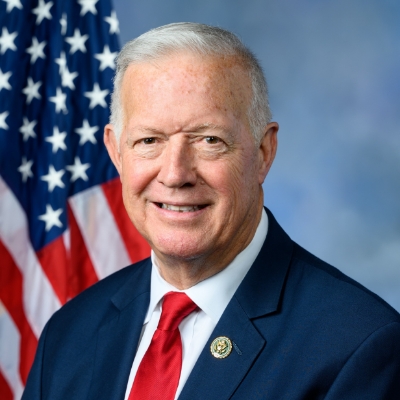- Home
- About
- Contact
- Services
- Art Competition
- Community Project Requests
- Congressional Commendations
- Flags
- Assistance with a Federal Agency
- Internships
- Military Academy Nominations
- Passports
- Presidential Greetings
- Tours and Tickets
- The Congressional Award
- Grants
- Water Resources Development Act 2026
- Additional Services and Resources
- Media
- Legislation
- Issues
- Resources
 U.S. REPRESENTATIVE
Randy Weber
Proudly Serving Texas' 14th District
U.S. REPRESENTATIVE
Randy Weber
Proudly Serving Texas' 14th District
Press Releases
Rep. Weber on Election Integrity
Washington,
March 17, 2021
WASHINGTON - Wednesday, March 17, 2021, U.S. Rep. Randy Weber (R-TX-14) issued the following statement on election integrity:
"I am extremely worried about the direction in which our country is heading. I was disgusted by the goings on of the 2020 Presidential election. We must protect the integrity of our elections. Action is necessary! "I am further appalled by the Democrats' outward attempt to undermine the Constitution insuring a never-ending Democrat rule. I am wholeheartedly determined, as are many of my Republican colleagues, to strike back and fight for our country with each and every tool our Constitution affords. I will always fight for my constituents, the American people, and the great principles on which this nation was founded.
Let me tell you about how I have been fighting for you, our district, and our nation in Congress.
"December 10, 2020, I joined several of my congressional colleagues in supporting the case, State of Texas, Plaintiff, v. Commonwealth of Pennsylvania, State of Michigan, State of Georgia, and State of Wisconsin, Defendants. The Texas case called for the Supreme Court of the United States (SCOTUS) to examine constitutional questions surrounding the election. Texas argued that, if other states are allowed to include illegally cast votes, the legitimate ballots of our own voters are necessarily diluted. Texas Governor Greg Abbott also noted that the intent was to provide certainty and clarity about the entire election process. The United States of America needs that." I have been talking to our state elected officials to reiterate the importance of shoring up our election laws.
Furthermore, I have co-sponsored several pieces of legislation to address the integrity of our elections."
116th Congress (2019-2020)
However, in practice, the NVRA works quite differently. In vetoing a similar bill in 1992, then President George H.W. Bush noted that it "would impose unnecessary, burdensome, expensive, and constitutionally questionable Federal regulation on the States in an area of traditional State authority. It would also expose the election process to an unacceptable risk of fraud and corruption without any reason to believe that it would increase electoral participation to any significant degree." The federal law requires states to offer individuals the opportunity to register to vote for federal office while applying for (or renewing) a driver's license, by mail, or at certain state-funded public assistance offices. The problem is that the federal law also requires states to accept merely a signed attestation from an individual that he or she is a U.S. citizen, without any further proof of citizenship. This gap in the law is ripe for fraud, despite the criminal penalties for perjury. Moreover, the federal mandate on states with large noncitizen populations makes it easy for ineligible persons to register to vote. The NVRA may be responsible for the improper voter registration of large numbers of noncitizens. The NVRA has also made it difficult, if not impossible, to maintain clean registration rolls. For example, as noted by the Heritage Foundation, "A state or county m.ay cancel registrations for inactivity in two consecutive federal elections, but before it may do so, the jurisdiction must provide by U.S. Postal Service a forwardable notice to the registered voter with a postage prepaid reply card requesting the registrant to confirm the existing registration. If no confirmation is received, a registrant may still vote on Election Day ifhe provides an affirmation that he still resides at the registration address. If the registrant does not respond to the forwardable notice described in Section 8 and does not attempt to vote, the registration may be cancelled only after the individual fails to vote in two more consecutive federal elections that occur after the notice was mailed. Some states, such as California, have failed to cancel registrations even in those circumstances, instead reclassifying the registrations as 'inactive' but making 'reactivation' a proforma event upon the inactive registrant's attempting to vote even after two election cycles have passed."
117th Congress (2021-2022)
###
|
